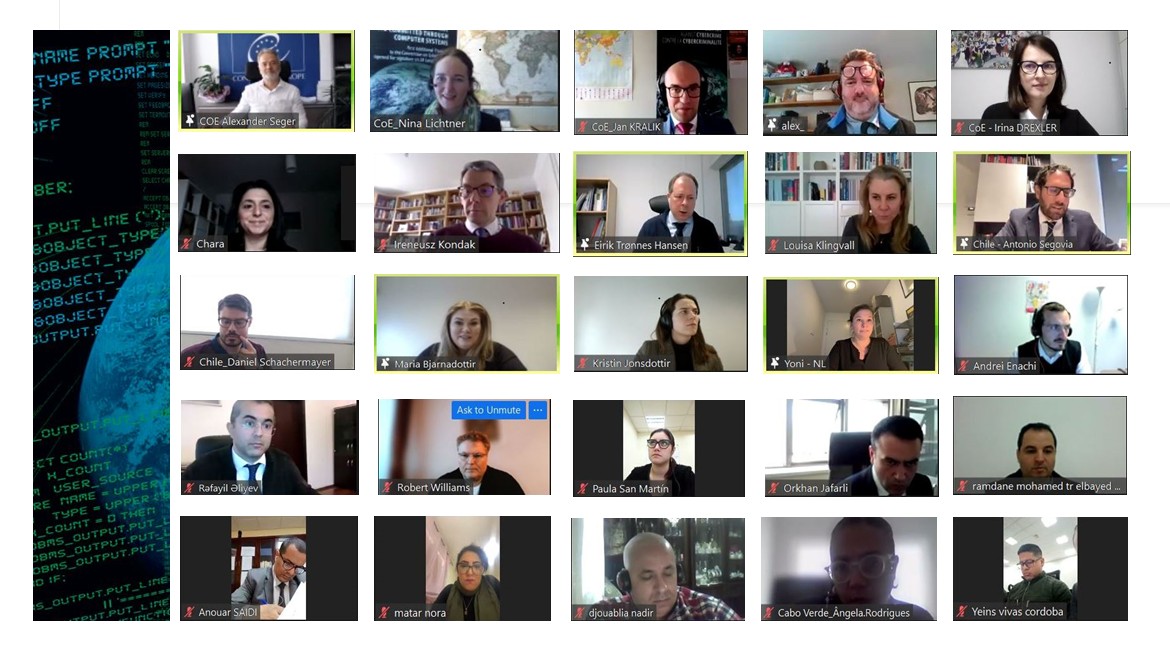On 28 February 2023, around 100 participants gathered online for the second webinar in the series of webinars on xenophobia and racism online, organised in the framework of the 20th anniversary of the First Additional Protocol to the Convention on Cybercrime.
The second webinar was an opportunity to underline the relevance of the Protocol and to encourage participants to reflect on and share their experiences of navigating the intersection of freedom of expression and an effective countering of acts of a racist and xenophobic nature online. At the same time, addressing the challenges of domestic law faced when considering becoming a Party to the Protocol and implementing it were also addressed, as well as taking measures that are complementary to the implementation of the Protocol so as to go beyond its provisions.
To continue the activities dedicated to the 20th anniversary of the First Protocol, a study is being prepared as well, that will provide all interested stakeholders with an overview of good practices and challenges regarding criminal justice action against online xenophobia and racism, as well as recommendations for further commitments. Once finalised, the study will be available for download on the dedicated webpage of the Protocol.
With Iceland having ratified the First Additional Protocol on 30 January 2023 on the margins of the International conference on xenophobia and racism committed through computer systems (Strasbourg, France), this instrument has now reached a total number of ratifications/accessions by 34 States. While the First Protocol focuses on substantive criminal law by requiring Parties to criminalise a number of acts of xenophobic and racist nature, the Convention on Cybercrime (Budapest Convention) offers tools such as procedurals powers and international co-operation provisions to investigate these offences. The same is true for the Second Additional Protocol to the Convention on Cybercrime, opened for signature in May 2022, that further enhances co-operation and disclosure of electronic evidence. States are therefore encouraged to join all three instruments. Countries which joined the Convention on Cybercrime (68 States to date) can become Parties to the Protocol, making them part of a strong and effective system to stop online hate.
The Council of Europe gratefully acknowledges voluntary contributions of the donors to the Octopus Project.
Council of Europe: First Additional Protocol to the Convention on Cybercrime (dedicated webpage)
Council of Europe: Series of webinars on xenophobia and racism online
Council of Europe: International conference on xenophobia and racism committed through computer systems (dedicated webpage)
Council of Europe: International Conference on xenophobia and racism committed through computer systems - sharing good practices on 20 years of implementing the First Additional Protocol to the Convention on Cybercrime (news item)
Council of Europe: Icelandic Presidency of the Committee of Ministers of the Council of Europe
Council of Europe: Iceland joins the First Additional Protocol to the Convention on Cybercrime, on countering xenophobic and racist acts committed through computer systems
Council of Europe: Second Additional Protocol to the Convention on Cybercrime on enhanced co-operation and disclosure of electronic evidence
Council of Europe: Convention on Cybercrime (Budapest Convention)
Council of Europe: Cyberviolence portal
Council of Europe: Octopus Project



